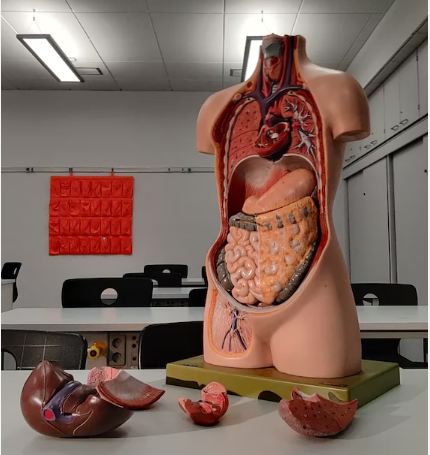It is difficult to speculate on the motivations of an individual who would propose a bill that seeks to incentivize or coerce incarcerated individuals to donate their bodily organs. However, it is important to note that such a bill would be widely seen as unethical and illegal, as it would violate several principles of medical ethics and human rights.
It is also worth noting that proposals for bills can be influenced by a variety of factors, including pressure from interest groups or constituents, personal beliefs or values, and political considerations. As such, it is important for legislators to carefully consider the potential impacts and consequences of their proposals before introducing them as bills.


In general, lawmakers may propose bills that are intended to address specific policy issues or to achieve certain political goals. However, it is the responsibility of legislators to ensure that their proposals do not violate the basic principles of ethics and human rights, and that they are consistent with established legal and medical standards.
There are several ethical and legal concerns associated with any bill that seeks to incentivize or coerce incarcerated individuals into donating their bodily organs. Some of the main concerns include:
Incentivizing or coercing incarcerated individuals to donate their organs could be seen as a form of exploitation, as they may be forced to make a choice between their health and well-being and their desire for early release from prison.
Violation of informed consent: Any organ donation must be based on informed consent, which means that the individual must fully understand the risks and benefits of the donation and make the decision freely and voluntarily. Coercing or incentivizing individuals to donate their organs in exchange for time off their sentence undermines the principle of informed consent and violates their autonomy and dignity.
Exploitation: Incentivizing or coercing incarcerated individuals to donate their organs could be seen as a form of exploitation, as they may be forced to make a choice between their health and well-being and their desire for early release from prison. This could be particularly problematic if the individuals are not adequately informed about the risks associated with organ donation.
Unequal access: If only incarcerated individuals are targeted for organ donation, it could perpetuate systemic inequalities in the criminal justice system and the healthcare system. For example, if individuals from marginalized communities are more likely to be incarcerated and therefore more likely to be targeted for organ donation, it could reinforce existing disparities in access to healthcare and the criminal justice system.
Coercion and abuse of power: In some cases, individuals may feel coerced or pressured into donating their organs in exchange for time off their sentence, particularly if they are vulnerable or do not fully understand the risks and benefits of the donation. This could be seen as a form of abuse of power by those who hold authority over the incarcerated individuals.
Overall, any bill that seeks to incentivize or coerce incarcerated individuals into donating their bodily organs raises serious ethical and legal concerns, and must be carefully evaluated and scrutinized before being considered for implementation.ow does Coercing or incentivizing individuals to donate their organs in exchange for time off their sentence undermine the principle of informed consent and violate the autonomy and dignity of the incarcerated?
Alternatives
Instead, efforts should be made to improve access to healthcare for incarcerated individuals, as well as to address systemic inequalities in the criminal justice system that may contribute to disparities in health outcomes. This could involve providing better medical care and education to incarcerated individuals, as well as addressing issues such as overcrowding and inadequate living conditions in prisons.
Furthermore, increasing awareness about organ donation and providing education about the benefits and risks of organ donation to the general public could help to increase the number of voluntary organ donors and reduce the need for coercive or incentivized organ donation.
In summary, a bill that seeks to incentivize or coerce incarcerated individuals to donate their bodily organs should be rejected outright, and efforts should be made to address systemic inequalities in the criminal justice system and to promote voluntary organ donation through education and awareness.
The James Grant Team
